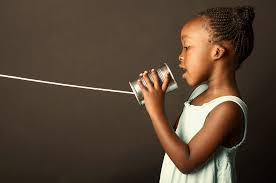How well we communicate is not determined by how well we say things but how well we are understood. – Andrew Grove

I often hear partners say, “I shouldn’t have to ask them to…” I hear 13–18-year-olds say, “they don’t understand what I’m telling them.” I hear parents say, “they just don’t listen.”
These statements are expressive and show us the direction to take as we pivot towards effective communication, which is really difficult by the way, so it is ok if it takes a lot of practice.

You might have been instructed by your life coach or therapist to use I statements, express with words, be mindful of gas lighting or stonewalling, and to practice active listening. Now raise your hand if you know all those words or how to execute those directions. Right? It is difficult stuff and most people aren’t trained to communicate well and play nice with others.
How do we begin improving these interpersonal relationships? I’m glad you asked, I have some tips.

Start Here
*Difficult discussions take preparation. Know specifically what you want and keep it simple. Ask for what you want. Negotiate after listening to the other side.
* Plan times to communicate for fun. Play board games where communication is practiced on a regular basis. THINK before you speak.

All humans are raised in different environments (even siblings), have different thought processes, and view different things as important. The Express and The Ask are very important tools.

1.Start with I feel I need and keep the sarcasm out.
a. “I feel overwhelmed with all these bills, I need you to pay for half of them.”
b. “I feel excited about our trip, I need you to stay positive while we plan it.”
c. “I feel angry. I need to get away for a few days in order to have a calm conversation.”
Instead of assuming what your partner can do, what your kid is thinking, or that your parent isn’t listening ask clarifying questions.

A. (Express) “I’m overwhelmed with all the chores and need you to help. (Ask) Would you like me to make you a list of what would help me most? (Show gratitude) Thank you for listening to my needs.”
B. (Express) “I know my grades are slipping, but quitting the only thing I enjoy won’t help. (Ask) Will you take some chores away and allow me to stay up later to finish homework until the season is over? (Show gratitude) Thank you for getting how important this is to me.”
C. (Express) “I don’t understand the kids you are hanging out with and it makes me afraid for you.” (Ask) Will you tell me about them and then bring them by for pizza so I can meet them. (Show gratitude) Thanks for hearing me on this. I love you and want to know you are safe.”

The most important thing to remember when wanting to communicate successfully is to THINK!
Is it True? Is it Helpful? Is it Inspiring? Is it Necessary? Is it Kind?
